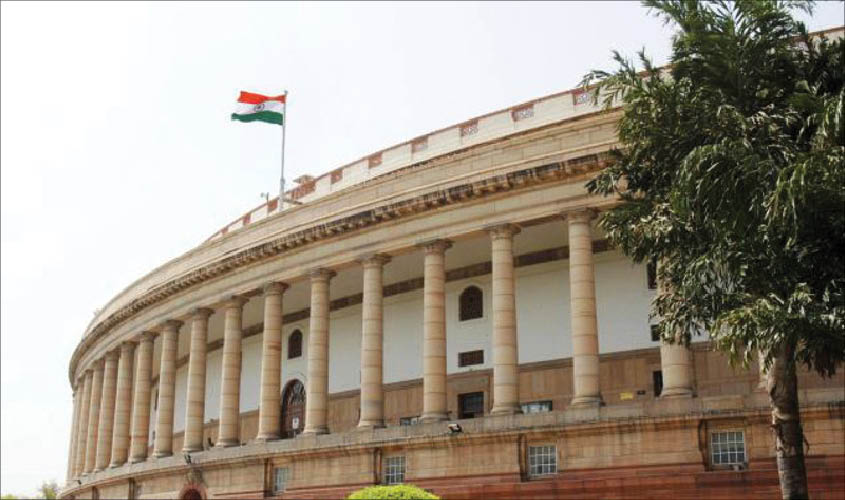The Bill is morally valid, historically warranted and Constitutionally robust: an act that emboldens the ‘idea of India’ as an ethical and compassionate nation.
The Rajya Sabha may have failed to clear the Citizenship Amendment Bill, however the urgency and validity of such an act remains. The high decibel brouhaha that it provoked is much ado about nothing; a controversy fuelled by ideological grandstanding and political horseplay than serious dialogue.
In fact, the myriad arguments railed against the bill, when clinically analysed prove to be mediocre, logically untenable, historically challenged and morally suspect.
The Citizenship Amendment Bill passed by the Lok Sabha on 8 January and which seeks to provide citizenship to illegal migrants from Afghanistan, Bangladesh and Pakistan, who are of Hindu, Sikh, Buddhist, Jain, Parsi or Christian extraction is a long overdue redress of a historical wrong inflicted on a hapless section of a population of undivided India.
The division of the subcontinent in 1947 into a secular India and Islamic Pakistan resulted in an abrupt and catastrophic redefinition of the equation between the individual and the state. Muslims living in India were given equal status on par with the Hindu majority. Muslims on the other side of the border in Pakistan were given pride of place. The only disadvantaged sections were the Hindus, Sikhs and Christians left behind in the new Islamic Pakistan; they were literally reduced to second class citizens for no fault of theirs. Families who had lived for centuries in the same place were disenfranchised by a single stroke of a pen.
The modern Indian nation as the successor state of an ancient civilisation had a bounden duty towards this subset of the population, which it abrogated by callously abandoning over five million Hindus, Sikhs and Christians and Buddhists to the vagaries of an oppressive religious state. It was an inexcusable moral lapse and a stark dereliction of duty.
Post-partition, Hindus Sikhs and Christians were subject to unheard of atrocities in Pakistan: forced conversions, forced abduction of young girls to be married off to Muslims and forced migration, making their lives a veritable hell. The Hindu population in Pakistan, Bangladesh and Afghanistan has shown sharp declines since 1947.
Victimisation of non-Muslims, especially Hindus, reached a peak during the 1971 war, garnering international attention. An article in Time, Pakistan: The Ravaging of Golden Bengal, categorically concluded: “The Hindus, who account for three-fourths of the refugees and a majority of the dead, have borne the brunt of the Muslim military hatred.”
In the Gary Bass’ book, The Blood Telegram (Vintage, 2014), Archer Blood, who was the American Consul General in Dhaka, speaks of the “international moral obligations to condemn genocide…of Pakistani Hindus.”
Unofficial estimates indicate that of the three million people killed in the Bangladesh genocide, 2.4 million were Hindus.
Historical perspectives like this cannot be ignored when critiquing the Citizenship Amendment Bill.
The contention that this Bill is “constitutionally suspect” and smacks of religious discrimination is a half-truth; a distorted and simplistic interpretation of the Constitution that does little justice to the nuances of legality.
True, Article 14 of the Constitution of India states that: “The State shall not deny to any person equality before the law or the equal protection of the laws within the territory of India.” And Article 15 disbars discrimination on the grounds of religion, race, caste, sex or place of birth or any of them. However, over the years, the Supreme Court in its judgements has refined the definition of equality. It permits laws to differentiate between groups of people if the rationale for doing so serves a reasonable purpose. In its judgement in the Onkar Lal Bajaj vs the Union of India case, the Supreme Court categorically stated that “equal treatment of unequals is nothing but inequality”.
Therefore, to treat a Hindu fleeing persecution and certain death in Pakistan, Bangladesh or Afghanistan on par with a Muslim voluntarily entering India for economic reasons or otherwise is callously cruel and grossly unjust.
The concept of equality cannot be invoked to perpetuate a historical wrong that needs to be righted.
In conclusion, this Citizenship Amendment Bill is morally valid and long overdue, historically warranted and Constitutionally robust: an act that emboldens the “idea of India” as an ethical and compassionate nation. To do otherwise would be a moral apocalypse and an unforgiveable deed.
Speaking at a public rally in Assam on 9 February, Prime Minister Narendra Modi could not have expressed this sentiment better: “They have come to our country and embraced the idea and ethos of Mother India.”
Can we turn them away with a clear conscience?
Vivek Gumaste is a US based academic and political commentator.

